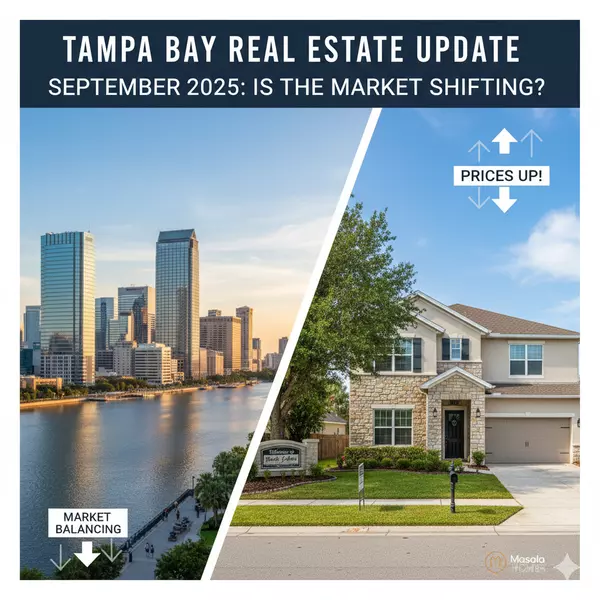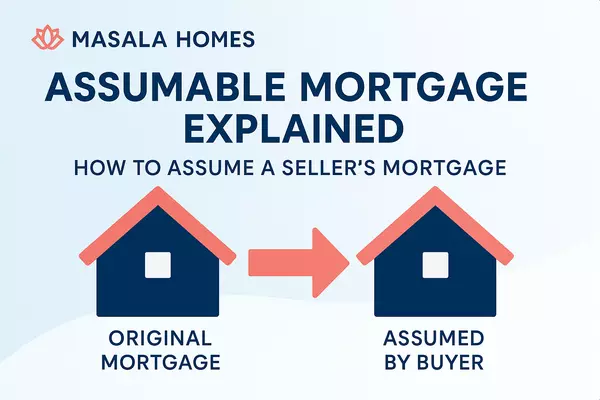Could Florida Really Get Rid of Property Taxes?

Could Florida Really Get Rid of Property Taxes?
If you’re a Florida homeowner—or just keeping an eye on state policy—you’ve probably seen the headlines about Governor Ron DeSantis’s push to eliminate property taxes on homestead properties.
At first glance, it sounds incredible. Who wouldn’t want to erase that annual bill? But here’s the thing: it’s a massive change that could reshape not only the housing market but also Florida’s entire economy. Let’s walk through what’s being proposed, what it means here in Tampa Bay, and where I personally land on this.
What’s Actually on the Table
Governor DeSantis is backing a constitutional amendment that would abolish property taxes on primary residences. If it makes the 2026 ballot, it’ll need 60% voter approval to pass.
That’s no small lift. Property taxes generate about $43 billion statewide, or roughly $2,000 per person. That money keeps schools open, funds public safety, maintains our roads, and pays for local services.
Some ideas floating around suggest raising the sales tax from 6% to as high as 12% to make up for it. You can imagine how popular that might be at the grocery store checkout.
Now, before we get carried away with “what if,” there are some real, near-term changes worth paying attention to:
-
$1,000 homestead rebate. If approved, these one-time checks could go out in December 2025, giving homeowners relief on the school portion of their taxes.
-
Amendment 5 (passed November 2024). This ties part of the homestead exemption to inflation for non-school taxes. The savings may only be $50–$100 a year for most families, but over time, it keeps pace with rising costs.
So yes—there’s momentum for relief. But total elimination? That’s a bigger mountain to climb.
Why This Is Such a Heavy Lift
Local governments and school districts run on property taxes. In fact, Florida collected about $55.2 billion in property taxes in 2024. Replacing that with anything else—whether higher sales taxes, new fees, or cutting services—is a tall order.
Independent analysts estimate you’d need around $43 billion just to keep local services whole. That’s why doubling the sales tax has even been mentioned, though it polls terribly with voters. In short: politically uphill.
Let’s bring this closer to home.
-
In Hillsborough County, the effective tax rate is about 0.98%. On a $300,000 home, that’s roughly $2,940 a year.
-
In Pasco County, the rate is about 0.89%, or $2,670 a year.
For families, eliminating that bill could free up meaningful dollars. But remember, those same counties depend on that revenue for transit, schools, parks, and other essentials. Shifting the burden to sales tax could hit lower-income residents harder.
Dates to Watch
Here are a few important milestones ahead:
-
October 1, 2025 — The SB 852 study is due to the Legislature. This will be the first real roadmap of how elimination might work.
-
December 2025 — If approved, the proposed $1,000 rebate checks would go out to homesteaded properties.
-
2026 Elections — Any amendment to eliminate property taxes would likely appear on the ballot. Remember, it needs 60% voter approval.
What It Could Mean for You
Let’s talk real-world impact.
Buyers
Lower monthly costs could make owning a home more attractive. For a $333,300 median home in Hillsborough, the savings might be over $3,200 a year. That could bring more people into the market, boosting demand and prices—at least in the short term.
Sellers
If buyers have more room in their budgets, it could translate into stronger offers and higher equity. But if replacement funding feels unstable, the market could swing the other way.
Investors
Lower carrying costs mean better cash flow. That could draw more investors into Florida real estate, although non-homestead properties may still face some level of taxation.
The Bigger Economy
On one hand, eliminating property taxes could make Florida even more attractive to businesses and families. On the other, relying more heavily on sales tax could create problems during a recession and disproportionately affect renters and lower-wage earners. Some argue smarter alternatives, like targeted luxury or tourist taxes, would be fairer.
My Take: A Calculated Risk
I lean cautiously optimistic. In the short run, the idea of eliminating property taxes could fuel demand and support housing prices. Florida already draws people from around the country, and this would only add to that appeal.
But long-term success depends on finding a stable way to fund schools, public safety, and local services. Without that, we risk shifting the burden unfairly or underfunding essentials in places like Hillsborough and Pasco.
Amendment 5 and the proposed rebate are solid, real steps toward relief. Full elimination is a much bigger leap. If it’s handled well, Florida could come out stronger. If not, the ripple effects could hurt more than they help.
Final Word
This is one of those “watch closely” issues. Relief is already happening, and bigger changes could be coming by 2026. For now, take advantage of the exemptions and protections already in place, and keep an eye out for your TRIM notice in August to confirm your assessed value and exemptions.
If you’re curious how this could play out for your own home or investment plans, I’d be happy to point you toward the right resources.
Disclaimer: This post is for informational and entertainment purposes only. It does not constitute financial, legal, or tax advice. Always consult a qualified professional for guidance on your personal situation.
Categories
Recent Posts







Smart Moves Start With Smarter data
Masala Homes At HomSmart

